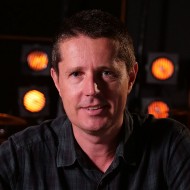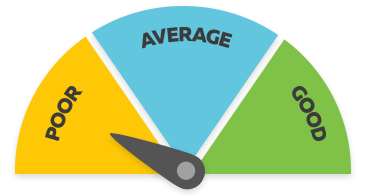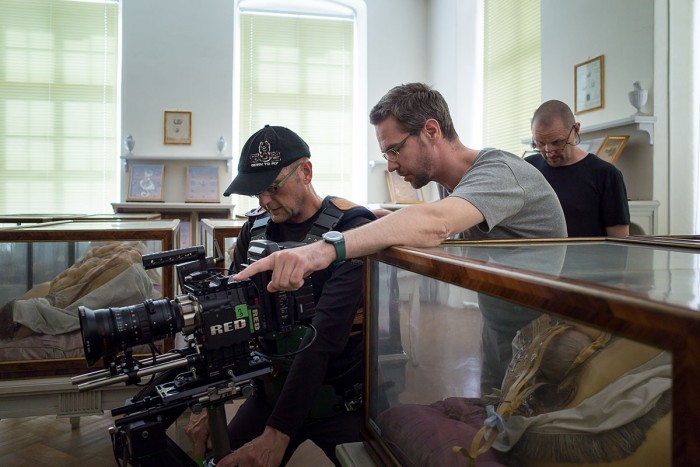Director (Film, Television, Radio or Stage)
Kaitohu (Kiriata, Pouaka Whakaata, Irirangi, Whakaari rānei)
Alternative titles for this job
Directors instruct cast and crew and oversee the artistic and production aspects of film, television, radio or stage creations.
Pay
Pay rates for directors vary depending on your ability, experience, and what type of work you do.
Source: Directors and Editors Guild of NZ, 2018
Job opportunities
Pay
Pay for directors varies depending on skills, experience and the type of work they do.
Many directors are self-employed and may work on their own short productions and earn very little, while others may do regular freelance work based on a recommended minimum rate of $2,500 a week.
Source: Directors and Editors Guild of New Zealand, 2018.
- PAYE.net.nz website – use this calculator to convert pay and salary information
- Directors and Editors Guild of New Zealand website - director's rate card (PDF - 350KB)
(This information is a guide only. Find out more about the sources of our pay information)
What you will do
Directors may do some or all of the following:
- study scripts to determine how they will be produced
- instruct actors, presenters and performers on how a scene or role is performed
- work with crew to assess technical requirements of productions
- collaborate with make up, hair and wardrobe departments
- direct or collaborate on the positioning of scenery, props, and lighting and sound equipment
- direct or collaborate on how a production is to be filmed
- be involved in final editing in collaboration with the editors.
Skills and knowledge
Directors need to have:
- knowledge of how to best use pictures and sound to present a story or information
- storytelling capability
- understanding of how to structure a live or prerecorded programme
- understanding of the technical aspects of production, such as design, lighting, video recording, sound recording and editing
- knowledge of photography and music
- the ability to create productions for specific audiences
- creative and artistic ability to analyse scripts, books, plays and other writing.
Working conditions
Directors:
- may work long and irregular hours
- work in offices, studios, theatres, and outdoors on location
- may have to travel long distances and sometimes overseas to get to location shoots.
What's the job really like?

Marcus Palmer
Director
Marcus Palmer is a documentary and television director whose credits include The Dragon Story, Police Ten 7 and MasterChef who took advantage of every opportunity he could to achieve his dreams.
Searched for opportunities
“I studied electrical engineering and quickly realised it wasn’t for me. So I went to South Seas Film and Television School and did a diploma in film and television production.
“My first job was as a director’s assistant on a show called Pukoro on Māori Television. After that I kept seeking out work and doing little jobs to build up my portfolio before I became the production co-ordinator on Marae DIY. While I was working on Marae DIY I also started work as a researcher on Just the Job.
“After I had been doing Just the Job for a while I asked if I could direct one of the episodes and eventually became one of the main directors on it.”
Rewarding to see your work out there
“I’ve done two documentaries and when they finally hit the TV there was a sliver of time there where I went ‘Wow, I made it.’
“When the Dragon documentary came out a critic said that it was as good as the Amy Winehouse documentary (Amy). I think that was a pretty remarkable achievement.”
Just keep going
“I think keeping going is the key to success in this industry. I must have spent five or six years just doing things towards getting my first directing job. Stick with it because it will happen if you want it to.”
Entry requirements
There are no specific entry requirements to become a director. However, a relevant tertiary qualification in screen, radio or stage production may be useful.
Experience in the entertainment industry and proven ability are essential.
Secondary education
There are no specific secondary education requirements to become a director. However, English, media studies, and music, dance and drama are useful.
Personal requirements
Directors need to be:
- skilled researchers and storytellers
- good communicators, with the ability to manage and motivate teams
- good decision-makers
- creative and imaginative
- disciplined and organised
- able to work well under pressure.
Useful experience
Useful experience for directors includes:
- journalism or research work
- management work
- camera operation
- video editing or production
- directing media productions
- graphic design
- photography
- acting.
Physical requirements
Directors need to be reasonably fit and healthy as the hours are often long and demanding, and they may work outdoors in challenging locations.
Check out related coursesWhat are the chances of getting a job?
Few opportunities for directors
It is difficult to get work as a stage, film, or television director in New Zealand because the entertainment industry is small.
Your chances of getting a job are best if you network regularly with industry contacts.
Most film industry professionals build a portfolio of previous work to showcase their professional skills.
According to the Census, 729 directors (film, television, radio or stage) worked in New Zealand in 2018.
Jobs lost during COVID-19 pandemic
Restrictions to control the spread of the COVID-19 pandemic have affected around 5,000 film industry jobs, including director jobs.
As the restrictions ease, some of these jobs may return.
The Government has announced $179 million of emergency funding for the creative industries, with a second round expected to be announced before the end of June 2020.
These initiatives may improve employment opportunities for directors.
Self-employment common for directors
Most directors are self-employed and work on a project-by-project basis.
Directors may work on:
- radio productions
- theatre, opera or dance productions
- television productions
- advertisements
- music videos
- corporate videos
- online video clips
- short or feature films
- documentaries
Sources
- Buckingham, D, general manager, Attitude Group, Careers Directorate – Tertiary Education Commission interview, March 2018.
- Creative New Zealand, 'Arts Council lays framework for Phase 2 of Creative New Zealand’s COVID-19 response' (media release), 01 May 2020.
- Elliott, G, producer, Picture Talk Productions, Careers Directorate – Tertiary Education Commission interview, March 2018.
- Jackson, S, production manager, Great Southern Television, Careers Directorate – Tertiary Education Commission interview, March 2018.
- Ministry of Culture and Heritage, ‘Support for Arts and Music Sector Recovery’ (media release), 29 May 2020.
- Palmer, M, director, Careers Directorate – Tertiary Education Commission interview, March 2018.
- Radio New Zealand, ‘The Impact of COVID-19 on the NZ Film Industry’, 19 March 2020, (www.rnz.co.nz)
- Roe, T, general manager, Fisheye Films, Careers Directorate – Tertiary Education Commission interview, March 2018.
- Stats NZ, '2018 Census Data', 2019.
- Stats NZ, 'Screen Industry: 2015/16', April 2017, (www.stats.govt.nz).
(This information is a guide only. Find out more about the sources of our job opportunities information)
Progression and specialisations
Directors may specialise in a particular area of production, such as feature and documentary films, television, radio or stage.
Last updated 2 July 2020

